Why Belgian vets are saying yes to objective gait analysis
Top Belgian equine veterinarians are clear: Objective gait analysis is becoming as essential as X-rays.
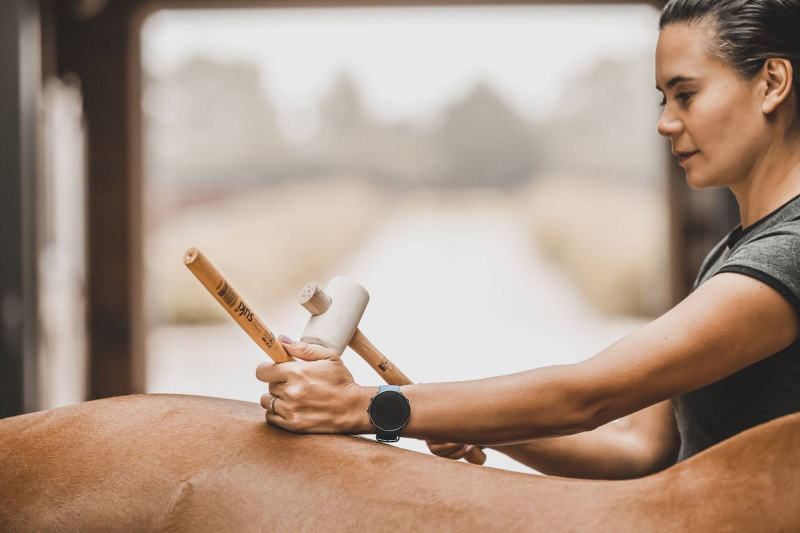
Intro:
One of the leading equine physiotherapists in the world, Dewi Bergman-van Mechelen specialises in orthomanual therapy, chiropraxis, and sports rehabilitation for horses.
Dewi is co-founder of DD Physio, a group practice known for its customer-focused and collaborative approach. The practice extends beyond traditional physiotherapy, working closely with specialists from the equine clinics Sporthorse Medical Diagnostic Centre SMDC in The Netherlands and Hästklinik Florian Lackner HKF in Sweden.

In this article, Dewi shares her professional views on 9 topics related to equine physiotherapy.
"As physiotherapists, we play a crucial role in the general management of a horse. We’re like spiders on the web, engaging in dialogue with many different people: the veterinarian, farrier, trainer, groom, rider, and other professionals. Together, we make sure that the horse is happy in its daily life."
"Twenty years ago, when I started my practice, coming from human physiotherapy, it was quite a culture shock; veterinarians weren't very keen on collaborative efforts. However, that has changed a lot, and we now have a strong culture of multidisciplinary teamwork. It's fulfilling to be part of a well-oiled machine with a single goal: the horse's welfare", Dewi Bergman-van Mechelen
"I'm quite direct. I believe in clear communication with my clients about their horse's condition, the treatment plan, and the goals we're aiming for. Clarity is key from the start. I always strive to find treatment methods that are as effective as possible. I want to resolve issues within three sessions. Then it’s about maintaining health with preventive care rather than drawn-out treatment plans.”
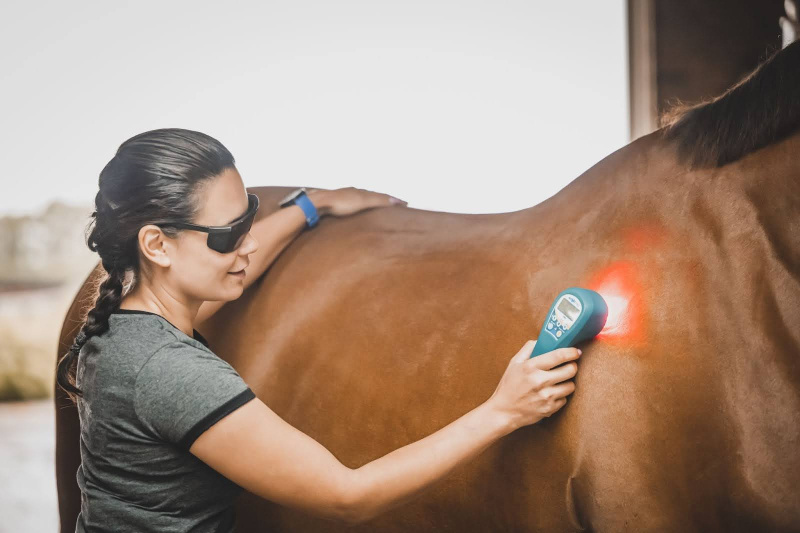
"As a physiotherapist, I often see horses with spinal and specifically caudal neck region injuries. To prevent these kinds of injuries, it’s important that the horse develop strong neck muscles with good control. Training the head and neck in various positions helps the horse stabilise and protect itself from injuries, like overstretching during a stumble."
"Back issues in horses are commonly linked to saddle fit and the rider's posture. A rider’s asymmetry can impact the horse's health, especially during long rides. I can help correct the rider's position; sometimes, I advise them to visit a human physiotherapist to correct their own imbalances. This is a collaborative approach between the horse, rider, and trainer."
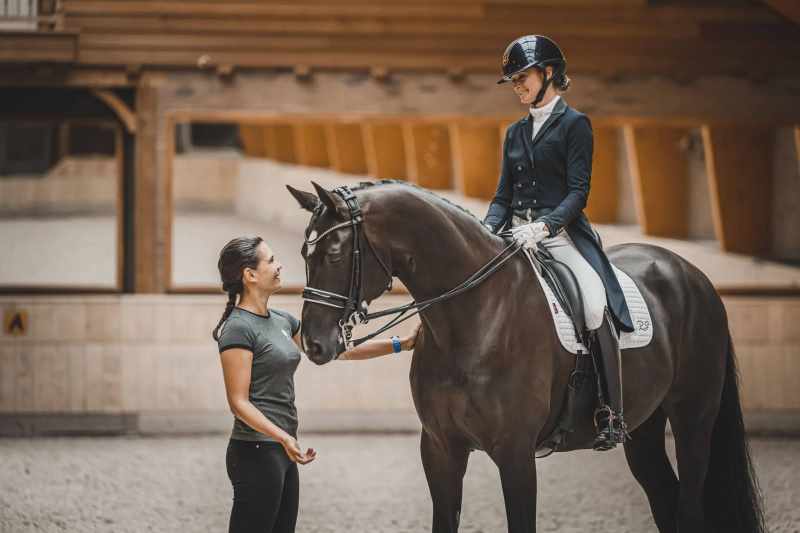
"Many horse owners come to me with concerns that aren’t necessarily alarming but are noticeable. It may be that their horse is finding it more difficult to bend to the left, showing resistance, or not moving as relaxed as they should. These signs of discomfort might be quite small and can indicate stiffness in joints or tight muscles, but they can also be signs of more serious issues like lameness or spinal injuries. It's my job to discern the difference, provide immediate care, and refer for advanced diagnostics if needed."
"The one big difference between treating horses and treating humans is that horses can't tell you what's wrong. When treating horses, you must have a keen eye for their biomechanics and reactions to palpation and spinal movements. There’s a silent dialogue between me and the horse, which requires a certain sense of horsemanship, hand sensitivity, and movement observation."
"The very first thing I notice when assessing a horse's movement is their overall behaviour—is the horse willing to move, and how? Observing whether a movement is relaxed or stressed gives me important insights, as a horse’s willingness and way of moving can significantly influence their gait and posture. This general impression lies at the foundation of my evaluation."
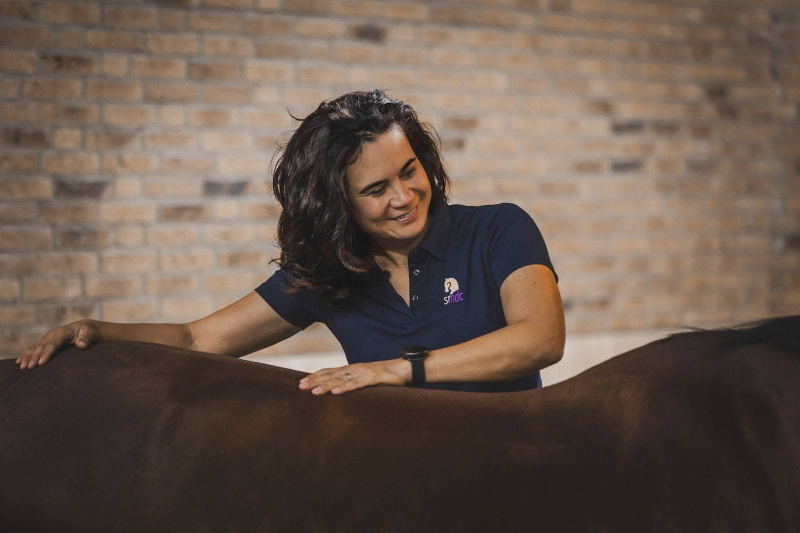
"In the Netherlands, we've set a high bar for equine physiotherapy. We have specific veterinary laws that say only professionals like veterinarians, their technicians, and registered animal physiotherapists are allowed to treat horses. This is very important because it ensures the quality and safety of equine care. Since you must be a certified human physiotherapist first, you need to complete a six-year educational program before specialising in animal physiotherapy. Therefore, the Dutch education system produces some of the best-trained professionals in the field, recognised as one of the top three worldwide."
"In my practice, there are three fundamental approaches. The first is curative, where we help horses that have suffered an injury, referred by veterinarians, during rehab. Preventive is where we help horses that have recovered and returned to sport, making sure they don’t regress. Lastly, optimisation is where we fine-tune the performance of high-level sport horses. I truly believe that preventive work is crucial—it’s about regular checkups.
This is important when it comes to young horses still gaining strength and stability, but also for horses that might be hypermobile and at risk of instability. Anything we can detect at an early stage means we can intervene before issues worsen. Perhaps we can even avoid the need for a veterinarian's care.
The goal of competitive tasks like dressage is to achieve as much symmetry as possible. And you know, no horse is inherently symmetric. Still, with targeted support, we can enhance their movement, balance their capabilities, and strengthen their weaker aspects, ensuring they can reach their peak performance. It isn't just about preventing injuries but elevating the horse's natural capabilities to excel in their sport."
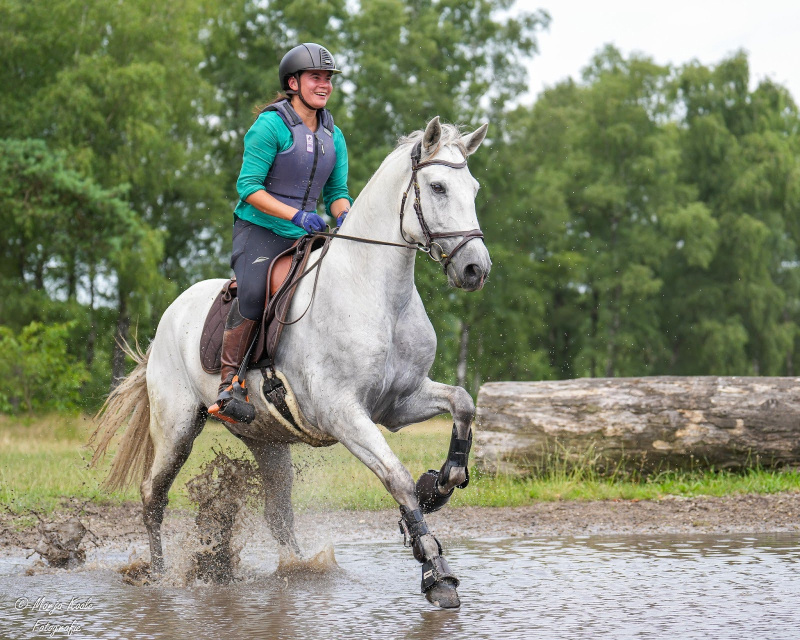
"If there’s suspicion of an orthopaedic issue, a specialised vet should be the first call. For less specific problems, like difficulty bending, a general vet may not pinpoint the issue and might not refer. A specialised vet, however, understands these nuances better. They will assess for lameness or underlying pathologies and possibly refer to physiotherapy. If a horse is brought to me and there’s no suspicion of pathology, I begin treatment immediately. If I suspect pathology, I refer to a specialised vet."
"20 years ago, I did a survey asking horse owners how they choose a physiotherapist, and most of them relied on word-of-mouth recommendations. Today, the internet and social media play a role too, but personal recommendations remain important. If you're unsure, my advice is to consult your vet for their trusted physiotherapy partners. Choosing someone with proper education and a willingness to work collaboratively with the veterinarian is a good start. A multi-disciplinary approach ensures that the physiotherapist can refer to a vet clinic when necessary and is part of a broader network of care for your horse."
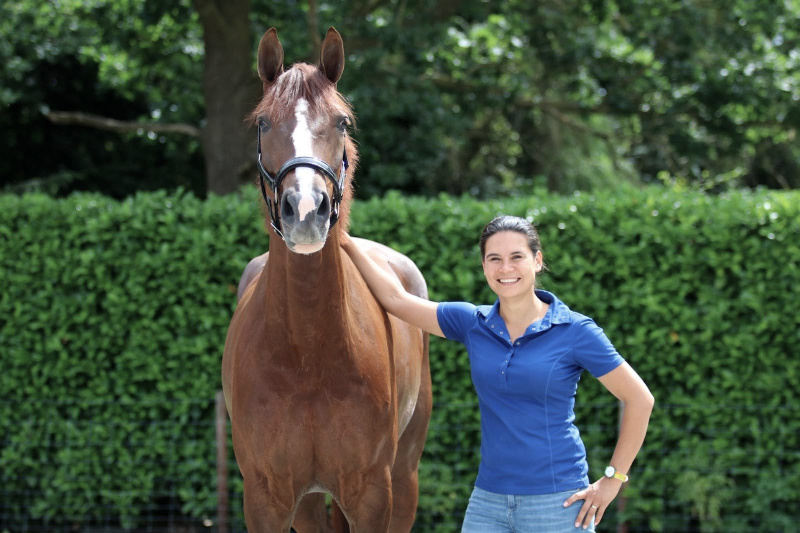

Top Belgian equine veterinarians are clear: Objective gait analysis is becoming as essential as X-rays.
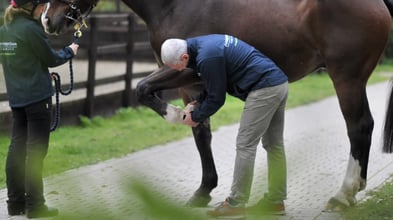
Giorgio Ricardi of Donnington Grove Equine Vets reveals how data-driven gait analysis enhances clinical decisions in complex lameness cases.
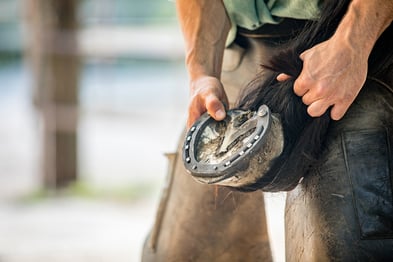
We sat down with UK Master Farrier Marc Jerram, who blends traditional skill with modern gait analysis to spot issues early and collaborate with vets on targeted solutions.